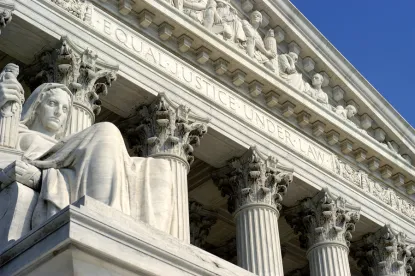For many years, unions representing public employees in a variety of states have continued to require employees to pay union dues even if they have an objection to certain political, lobbying, or other activities the unions engage in. However, the permissibility of such requirements looked likely to disappear via a Supreme Court ruling this term. To the chagrin of many, that likely result suddenly disappeared, and due to fortuitous circumstances, the law of the land continues to allow unions to require payments even from public employees who object to the unions’ political, lobbying, and other activities.
Public sector unions, including those representing large groups of public school teachers, firefighters, and police, had been fearing that the Supreme Court would overrule a prior Supreme Court ruling from 1977. Due to the death of Justice Antonin Scalia on February 13, 2016, the Supreme Court ended up deadlocking – four-to-four – on the newest case originally expected to result in a five-to-four decision overruling the lower appellate court and rejecting the prior Supreme Court decision. The deadlock meant that the lower federal appellate court ruling, in favor of upholding the 1977 ruling prevailed.
At issue are “fair share” or “agency shop” agreements. These agreements are put in place by unions representing public employees as a means to finance their operations. In other words, a decision by the Supreme Court reversing its 1977 ruling would have hit these unions right where it hurts most – in the wallet. A “fair share” agreement provides that every person employed in a position covered by a bargaining unit must either pay union dues or a fee which represents a share of the costs of the services provided by the union. For example, even employees who do not want to join the union and who object to certain lobbying activities that a union engages in can be made to pay an arguably “fair share” of those costs.
The argument against requiring such agreements is that it violates a covered employee’s First Amendment rights. During oral arguments in the case in January, prior to Justice Scalia’s death, it appeared all but certain that a majority of five justices would rule in favor of the First Amendment argument, thus reversing the prior court ruling that had favored unions in upholding the agreements. With Justice Scalia’s death, and the resulting four-to-four deadlock, public employee unions can continue to collect dues and fees from those who object to their activities.
Depending on which President – perhaps President Obama, perhaps President Clinton, or perhaps President Trump – ultimately appoints Justice Scalia’s replacement, this issue may or may not arise again at the Supreme Court. Opponents of fair share agreements continue to litigate First Amendment claims in lower courts. One or more of those cases could end up again in front of the Supreme Court justices, and, depending on the balance at that point in time, the public unions may or may not have big concerns. For now, however, they have snatched victory from the jaws of likely defeat.




 />i
/>i

